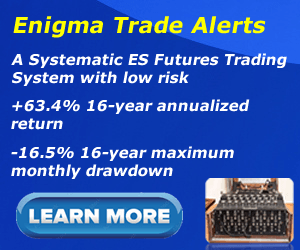
Which Broker is Best? Things to Consider When Choosing a Brokerage Firm
Most traders shop around from time to time for the best brokerage firm for their trading needs. The first question usually asked is: “What are your commissions?” While low commissions are certainly an important factor, they are not the only aspect to consider when deciding on a broker. Low commissions can add to the profitability of a trade, and add flexibility with which a trader can adjust. However, there are other equally important elements to take into consideration:
Additional questions you should ask with regards to costs:
- Is there a minimum account balance for the best commission rate? Or, is the rate based on trade volume, i.e. number of contracts traded per month?
- Are there “cancel/replace” fees? If you are a trader who tries to get the absolute best price possible in order execution, you probably cancel and replace your working orders frequently as the mid prices change. Some brokerage firms charge a flat fee every time this is done, which can get very costly for a large or complex position.
- Is there a minimum ticket charge in addition to the commission? That minimum ticket charge can make it difficult to test new trades in small contract sizes.
- Is there an exchange fee charged for index trades? For example, some brokers charge an exchange fee for SPX trades, other brokers absorb this cost.
- Do you trade as a business (i.e. partnership, corporation, LLC)? If so, be sure to ask if a monthly fee is charged for such trading entities.
Other considerations you should know before selecting a broker…
- Do you trade futures? Not all brokers offer futures trading, so be sure to ask if you trade futures or use them as a hedge in your options positions.
- What are the order entry choices? Some discount brokers do not allow complex, multi-leg orders. If you are a directional trader trading just single orders, this may not be an stumbling block when considering a new brokerage. However, for those who trade more involved positions, be sure the order entry, adjustment, and exit choices that you are comfortable with are available.
- Is the platform stable? While every broker is subject to technical difficulties at times, it's always best to delve into the stability of the trading platform when choosing a broker. Do your due diligence… talk with other traders about their experience with the platform.
- What if the platform DOES go down and stops working? How difficult is it to reach the trade desk for immediate support?
- What type of mobile platform is available, and what types of trades can be executed on the mobile application?
- How do their alerts work? Be sure you can set them on whatever parameters you are comfortable using, i.e. delta, option price, underlying price, etc.
- What type of contingent orders can be set up? Some brokers do not allow “OCO's” (one cancels other) on multi-leg positions.
- What types of technical analysis and charting is available? Some platforms are better than others at providing technical indicators.
- How much system memory does the platform use? Some traders with older computer hardware may find their computer freezes if they don't have adequate memory.
What's the bottom line?
In summary, there is no “one size fits all” for online brokerages. The trader who has a $3,000 account, trading small positions with one or two contracts, certainly doesn't want a brokerage that charges a minimum ticket charge.
The trader who trades a $500,000 account and also has a sophisticated third party software he/she uses for charting, analyzing the position greeks, p/l, etc. may not care about a ticket charge as the positions are so large. The lowest-commission platform may suit his/her needs, as long as the platform is stable.
Then there is the middle-of-the road trader with a $50,000 account who may have different needs:
- If he/she trades actively from the workplace, the key element may be a mobile platform with great alerts.
- If he/she is unable to monitor positions during the work day, it is necessary to have a broker who can handle whatever contingent orders are necessary to manage the trade.
Be sure to go beyond the commission structure and think about all the additional fees that may be involved when choosing a broker. And just as importantly, be sure to do all your homework to insure that a potential brokerage will encompass all the components that you need to manage your trades effectively. This article is not meant to be “all inclusive” as far as what to consider when you are choosing a brokerage. Rather, it is meant to give a general guideline to help in your research.
Do you have any particular brokerage tips? Feel free to comment.


I think it’s important to make sure that you get a good futures broker. That way you can get more options. It would be bad to be stuck without the proper choices!
Thanks for pointing out that the rate of their service shouldn’t be the only basis when hiring a broker since there are other things to consider as well such as their flexibility. I will definitely share this with my mom to help her out in choosing a broker. She just needs one to assist her since she wants to let go of some of her properties located in a different state due to being old now.